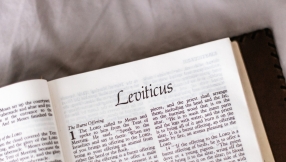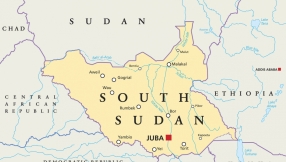The Presiding Bishop of the 2.4 million-member U.S. Episcopal Church Frank T. Griswold has rubbished the recent proposal by Global South bishops that the Church be split into two churches to resolve the dispute over gay issues.
Bishop Griswold said Thursday that any such split in the U.S. Episcopal Church would lead to chaos.
|PIC1|He further commented that the communiqué issued on September 22 from Kigali, Rwanda, by the conservative bishops "raises profound questions about the nature of the church, its ordering and its oversight".
Leaders of 20 Anglican provinces at the Global South Primates meeting last week released a communiqué on Friday commending conservative leaders in North America for their "faithfulness" and proposing a separate orthodox Anglican structure in the United States.
Since the 2003 consecration of New Hampshire Bishop V. Gene Robinson, an active homosexual, the Episcopal Church - the U.S. Anglican arm - has remained divided and many conservative leaders believe a division is inevitable. The Rt. Rev. John H. Rodgers, a bishop with the conservative Anglican Mission in America, has added that conservative U.S. churches are looking to form a separate Orthodox Anglican province as an alternative to the Episcopal Church.
Bishop Griswold, who supported the consecration of Robinson, stated his belief in a formal response posted on Thursday by the Episcopal News Service, that "such a division would open the way to multiple divisions across other provinces of the Communion, and any sense of a coherent mission would sink into chaos".
He also accused the conservative bishops of attempting with the release of the statement to undermine the dialogue and discussion that had been underway since the Windsor report, sentiments which echoed those of the Archbishop of Cape Town who came out Sunday to distance himself from the communiqué.
"...there is no doubt that the tensions within the Anglican Communion, arising from actions within North America, raise serious and problematic concerns for our future," said Archbishop Njongonkulu Ndungane in the statement. "Yet I am deeply disturbed by the tenor of our approach, as reflected in this communiqué."
Most Popular
Stay up to date with Christian Todayrelated articles
Emergency Episcopal-Anglican Talks Bring No Consensus on Homosexuality
Emergency Episcopal-Anglican Talks Bring No Consensus on Homosexuality
Anti-Gay Bishops Vote to Split Evangelical Church
Anti-Gay Bishops Vote to Split Evangelical Church
Anglican Global South Reveals Intent with Communiqué on Gay Dispute
Anglican Global South Reveals Intent with Communiqué on Gay Dispute
American Anglican Council Responds to Global South Communiqué
American Anglican Council Responds to Global South Communiqué
Anglican Leaders Disagree on Global South Communiqué
Anglican Leaders Disagree on Global South Communiqué
News

NI conversion therapy proposal will criminalise innocent behaviour
A proposal to ban conversion therapy in Northern Ireland has been labelled "jellyfish legislation".

Renewing the old and sanctifying the new in education
Hebrew academic and Jewish scholar Irene Lancaster reflects on what society can learn from the Jewish approach to education and the importance of nurturing the soul.

Half of students think the Bible is relevant today
Is the glass half empty, or is it half full?

Lancashire called to pray for partners in crisis-hit South Sudan
The Diocese of Blackburn has forged strong ties with its South Sudanese counterpart in Liwolo.





